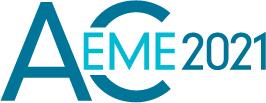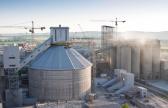The 7th edition of the ACEME Conferences promotes research and development activities on accelerated carbonation at an international level, favoring the share of knowledge and discussing future development and implementation in the field.
Important Dates
- Early Bird registration deadline is April 16

The 2021 ACEME conference brings together the most important players in the field of accelerated carbonation technology development, aiming at large-scale CO2 mineral sequestration, the production of valuable carbonate materials from industrial wastes and by-products, or both. International agreements on CO2 emissions mitigation and increased efficiency of material resources will bring academia closer to businesses and markets.
Conference Topics
As always, this conference will certainly have an enriching effect on the world of CCS by mineral carbonation. However, this has a particularly encouraging and activating effect on both the Estonian academic community and the industrial sector, as Estonia is at the top of the countries in terms of CO2 emissions per capita.
Featured Speakers
Who should attend?
- Researchers & students focused on accelerated carbonation
- Professionals from mining, heat and power, cement industries or materials and environmental engineering
- Researchers and professionals who develop technologies towards commercialization
- CO2 producers interested in CO2 mineral sequestration opportunities
- Professionals who develop markets for carbonates and other products from CO2 mineral sequestration
After a relatively long pause, this year’s ACEME conference will bring new life to the field of accelerated carbonation technology.
Top Reasons to Attend ACEME 2021
- Explore new process routes, applications, and products accelerated carbonation technology
- Learn about novel testing techniques
- Discover advances in CCS by mineral carbonation and environmental engineering
- Explore large-scale CO2 mineral sequestration using industrial wastes and by-products
- Compare market opportunities for CO2 mineral sequestration deployment vs. other CCS/CCU approaches










